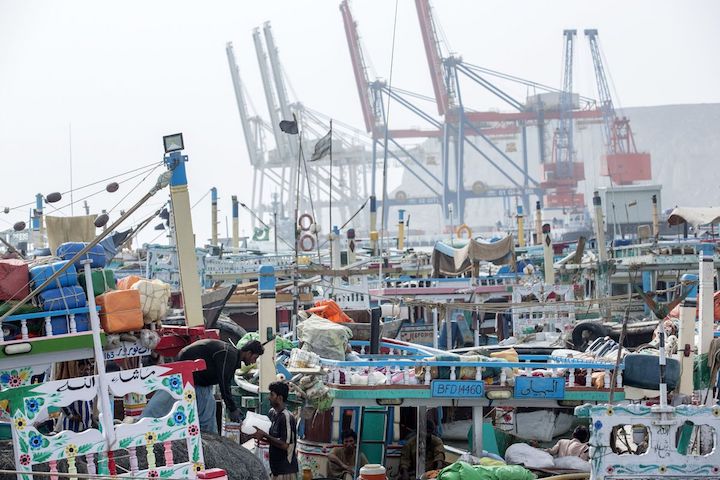Pakistan’s move to import food items to tame Asia’s fastest inflation has an unintended casualty—cement exports.
Vessels bringing in food grains and sugar are crowding out dry bulk carriers meant for exporting cement from the nation’s two biggest ports in the southern Karachi city. The result: Pakistan’s cement exports declined 18% to 633,431 tons last month, steeper than the 5% drop seen in November, amid non availability of berths to load the goods.

Prime Minister Imran Khan is under immense political pressure to put a lid on inflation, which at 8% in December was the highest among Asian economies tracked by Bloomberg. His government is now aggressively importing essentials like wheat, sugar and canola to curb prices, which the International Monetary Fund sees increasing further to 8.8% in the year ending June.
In the four months through December, a record 30 wheat vessels were handled at Karachi Port, Pakistan’s Maritime Affairs Minister Ali Haider Zaidi said in a twitter post Dec. 27. An equal number of ships carrying more wheat are scheduled to arrive at the nation’s biggest port by March to complete the planned 3.6 million tons imports.
Power Cement Ltd., a top exporter and the second-largest producer in Pakistan’s south, has stopped booking ships to transport clinker to its international clients. Another exporter, Attock Cement Pakistan Ltd., obtained an order from a court to ensure that the operators of Karachi port handle ships on a first-come-first-served basis.“The cement ships are facing eight to nine days of waiting time,” Power Cement Chief Executive Officer Muhammad Kashif A Habib said in an interview.
The increased handling of imported grains and the resultant congestion at the deep draught berths—needed for berthing cement vessels—have resulted in a monthly revenue loss of as much as 2 billion rupees ($12.5 million) for the industry, Habib said.
Apart from 300,000 tons of sugar imports, Pakistan plans to import wheat in more than 60 vessels booked by the state-run and private importers by March, according to official data.
Shariq Amin Farooqui, a spokesman at Karachi Port, denied that the port was congested because of wheat and sugar ships.“Our ship handling rules do not go commodity wise but are based on the first-come-first-served basis,” he said.The South Asian nation exports cement and clinker mostly to Yemen, China, Bangladesh, and East African nations, with exports last year valued at $260 million, or 1.2% of the total.

Follow us on social media: